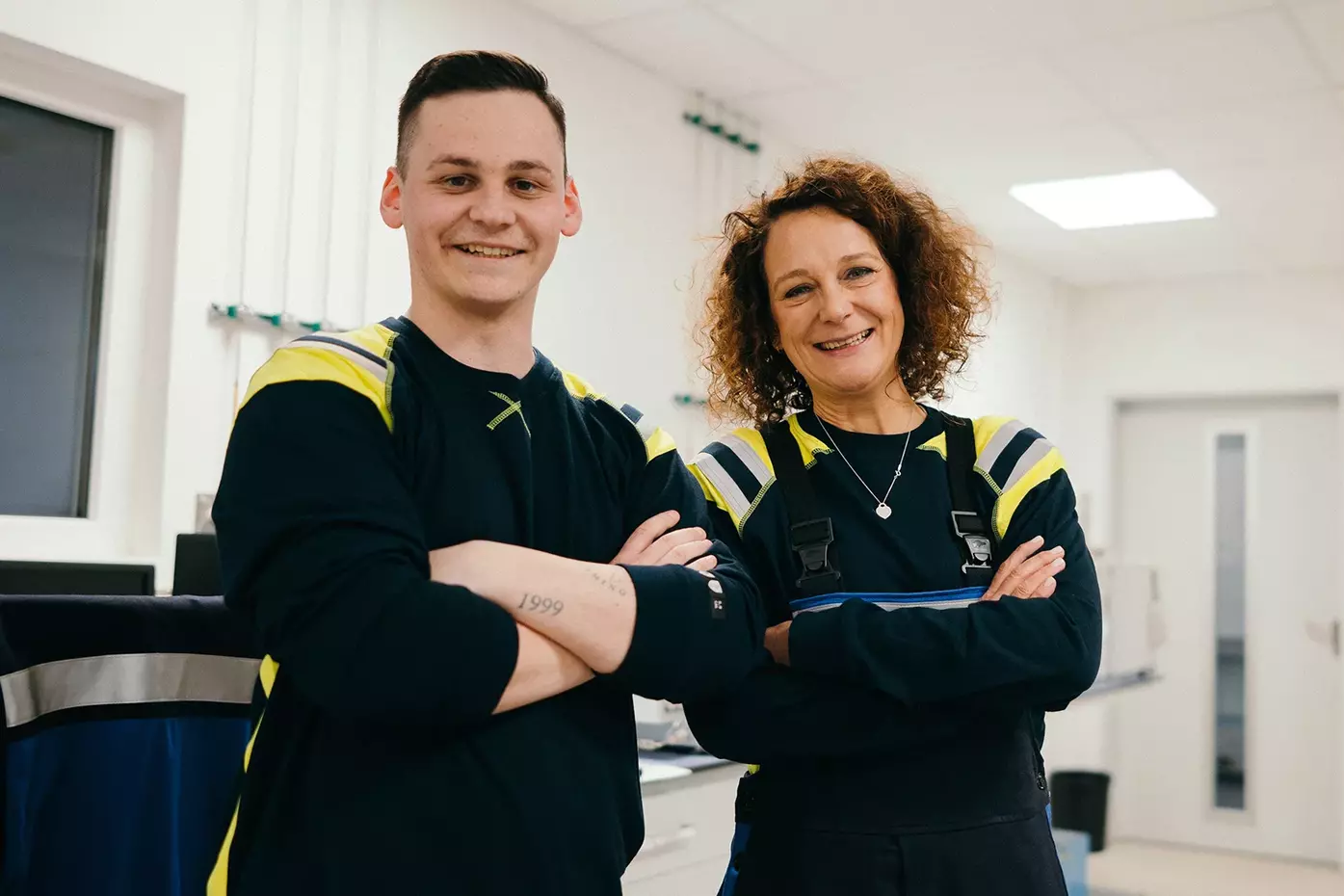The Client
Deutsche Bahn AG, headquartered in Berlin, Germany, is a leading global provider of mobility and logistics services. The company operates an extensive network, encompassing railways, bus services, and logistics solutions, serving millions of passengers and businesses worldwide daily.
As one of the largest employers in Germany, Deutsche Bahn employs over 220.000 people across various divisions, including passenger transport, freight transport, and infrastructure management. The company operates in more than 130 countries, ensuring that it can leverage diverse expertise, skills, and resources from its international workforce to deliver exceptional services.
With over 180 years of railway expertise, Deutsche Bahn has consistently invested in innovation and modernization while maintaining its expert know-how. This commitment to its people and progress has kept the company at the forefront of the transportation industry. By integrating cutting-edge technology and sustainable practices, Deutsche Bahn aims to enhance operational efficiency, reduce environmental impact, and improve customer experience.
The Challenge
In today's fast-paced business world, characterized by skills shortages and rapidly evolving technologies, it is crucial for companies to have transparency regarding internal skills. This is especially true for a group like Deutsche Bahn, where expert knowledge and skills have been the foundation of success for over 180 years. However, Deutsche Bahn faced several challenges in this area.
One major difficulty was the dispersal of potential skill data across the organization, embedded in the knowledge of various subject matter experts (SMEs). Without a central skill catalog serving as a common language across functions—from HR to talent management—harnessing and leveraging valuable skill insights for informed decision-making and strategic planning was challenging. The awareness that many skills resided within the business and could possibly even leave the company in the future, combined with the intensified hiring market, underscored the need for more strategic workforce planning.
In addition, on the learning and development side of the business, the teams had already compiled an extensive training catalog to provide upskilling opportunities. However, these trainings and learning materials were still unconnected to specific skills, making it difficult for HR-Teams to suggest, prioritize, and track learning activities based on skills and their impact. Plus, employees were often confused by the sheer volume of content available, resulting in valuable resources often going unused.
The team recognized the daunting task of creating a central skill catalog for one of Germany's largest employers and mapping the training portfolio to these skills. The challenge of aligning thousands of courses with specific skills was immense. Acknowledging that this process could take months (or even years), Deutsche Bahn sought a more efficient solution.
The Solution
In its pursuit of becoming a skills-based organization, Deutsche Bahn recognized these challenges and sought a partner to lay the foundation for their transformation. This involved providing teams with a common language for skills, connecting the training catalog to these skills, and implementing a governance structure to maintain the skill catalog.
edyoucated impresses with its overall expertise in the field of skill-based learning. Working closely together, we were able to create a company-specific skills database and lay the foundation for a skills-based organization. In addition, edyoucated has a strong customer focus and is committed to creating customized products. - Moritz Klug, Expert Strategic HR Development - Focus Skill Management
Together, we developed a joint roadmap to work towards this transformation:
Developing a Customized Skills Taxonomy
Our team collaborated with Deutsche Bahn to develop a customized skills taxonomy. Utilizing our AI-based skill extraction service, we conducted an in-depth analysis of hundreds of documents, significantly reducing the manual workload. We also conducted seven skill curation sprints with subject matter experts (SMEs) to uncover hidden skills, ensuring the skills inventory was comprehensive and tailored to Deutsche Bahn's specific needs.
The extracted data was integrated with the edyoucated universal taxonomy, resulting in a customized skills taxonomy. This new taxonomy supports multiple use cases and serves as a baseline for future skills-based initiatives across the organization, revealing hidden insights into Deutsche Bahn's specific skill sets.
Mapping Trainings to Skills
Additionally, the teams utilized our AI-based matching service to map the entire training catalog to over 7,000 skills. This automated process connected thousands of training courses to the skills catalog, significantly reducing the manual workload. This approach made it easier to identify relevant skill gaps and enabled future automation for personalized course recommendations within the learning experience platform and internal training programs. Consequently, employees now have access to the most relevant learning content, enhancing their development and aligning with organizational goals.
Establishing a Skill Governance Framework
Thirdly, together with the DB Team we developed a comprehensive skill governance framework to ensure efficient collaboration between the skill management team and domain experts responsible for skill curation. This framework harmonizes both automatic and manual skill curation processes, facilitating the ongoing maintenance of the skills database and ensuring a seamless connection to various use cases. The governance framework includes clear guidelines and processes for updating the skills taxonomy, validating new skills, and integrating feedback from different departments. This ensures that the skills database remains accurate, relevant, and aligned with Deutsche Bahn’s strategic objectives, ultimately supporting a culture of continuous learning and development.
The Results
Deutsche Bahn's collaboration with our team yielded remarkable outcomes, establishing a solid foundation for their skills-based transformation:
- Customized Skills Taxonomy: A bespoke skills taxonomy comprising over 7,000 skills was developed, providing a robust foundation for Deutsche Bahn's skills-based initiatives. This comprehensive taxonomy will become the common language for skill across various functions.
- Skill Curation Sprints: Seven skill curation sprints were conducted with subject matter experts (SMEs), uncovering hidden skills and enriching the organization's skills database. These sprints ensured that the skills inventory was both comprehensive and reflective of Deutsche Bahn's specific needs.
- High Coverage Rate: Achieved a coverage rate of over 99% between training programs and skills, enabling granular course suggestions. This high coverage rate ensures that employees receive the most relevant and targeted learning opportunities, enhancing their development and aligning with the company's strategic goals.
- Governance Framework: Implemented a comprehensive skill governance framework to ensure efficient collaboration between the skill management team and domain experts responsible for skill curation. This framework harmonizes both automatic and manual skill curation processes, facilitating the ongoing maintenance of the skills database and ensuring its relevance and accuracy.
This strategic approach to skills not only addresses current challenges but also positions Deutsche Bahn for future success. By leveraging these robust frameworks and methodologies, the company can anticipate and adapt to industry changes, ensuring sustained competitiveness and operational excellence in the years to come.












